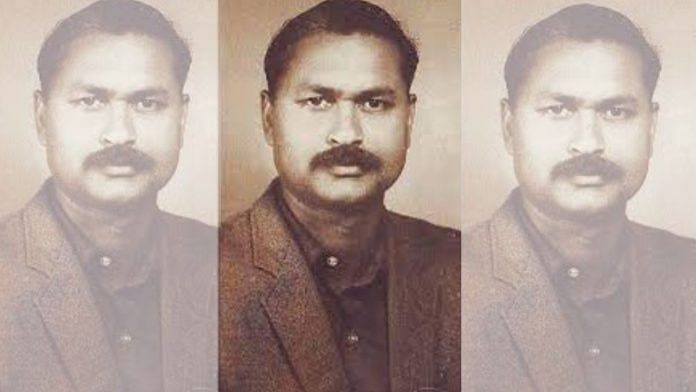When the Indian government attempted to make Hindi the official language of the country in 1965—under Article 313 of the Indian Constitution—Tamil Nadu became a flashpoint for dissent and ultimately, violence.
Up north, Sudama Pandey ‘Dhoomil’ couldn’t sit still. A progressive writer known for his ‘protest poetry’, he blamed Indian politicians for promoting and fostering divisiveness, wrapping his criticism in thought-provoking words: “In the eyes of the true butcher, your Tamil anguish and my Bhojpuri grief are one and the same in the mouth of that beast who is one thing in the street and another in Parliament,” wrote Dhoomil in his poem, Bhasha Ki Raat, or The Night of Language in English.
Even though Hindi was Dhoomil’s mother tongue, he empathised with protesters in South India. He compared the politician to a “butcher” and “hungry beast” who used the sensitive subject of language for personal gains. Bhasha ki Raat rings true to this day, as do most poems by Dhoomil—the ‘angry young man’ of Indian poetry who was not afraid to call a spade a spade.
Also read: Nusrat Fateh Ali Khan was Singing Buddha in Japan, Pavarotti in Paris, Islam spirit in London
Poet of the masses
Dhoomil’s genius lay in exposing the problems of a developing society. As a poet of protest, he worked closely with Hindi literary giant Gajanan Madhav Muktibodh, widely considered a bridge between the progressive and modern movements in Hindi poetry.
While his honest and outspoken poetry earned him the ‘angry young man’ moniker, Dhoomil could only publish one collection of poems in his lifetime, Sansad se Sadak Tak, or From Parliament to the Street. However, Kal Sunna Mujhe, another collection of his poems published posthumously, won the Sahitya Akademi Award for Hindi literature in 1979.
A humble start
Dhoomil had humble beginnings, his life a marker of hardship and struggle. His father, Shivnayak Pandey, was an accountant, and the family moved around a bit before settling in Khevali, a village close to Varanasi in Uttar Pradesh. It was here that Dhoomil was born on 9 November 1936.
Married at a young age of 13, Dhoomil lost his father by the time he hit 15. He worked as a carpenter to fulfil his responsibilities, before becoming an instructor in the same school where he had earned his diploma in electrical engineering.
After Muktibodh died in 1964, Dhoomil became the most prominent poet of protest and insurrection, drawing attention to the obvious flaws in the system that Indian democracy had established. The helplessness of the common person is a theme that runs through his poems. And his words find as much resonance with society as they did 50 years ago.
Unlike his adopted title Dhoomil (lacklustre)—a name he took on to differentiate himself from Sudama Tiwari, another contemporary Hindi poet in Varanasi—his poems stung with their sharp criticism of the State and its machinery.
In Bees Saal Baad, written 20 years after Independence, his tone oscillated between concerned to confrontational. “Twenty years later, I ask myself, is freedom merely the name of three worn colours dragged by a single wheel, or does it have some significance?”
Also read: How ‘Great Wall of China’ Gostha Pal redefined Indian football
India’s dynamite poet
In his Memoriam of the firebrand poet, writer and journalist Krishna Pratap Singh wrote: “The dynamite that was created by Muktibodh and was ticking during the time of Raghuvir Sahay perhaps exploded when Dhoomil entered the scene of Hindi poetry with his words.”
In 2006, Bharatiya Janata Party (BJP) objected to the inclusion of one of his more radical poems, Mochiram, in NCERT Hindi textbooks. This staunch opposition forced the government of India to replace it with one of his other poems, Ghar Mein Wapsi.
In many ways, Dhoomil chose obscurity over notoriety. He suffered from a brain tumour and died on 10 February 1975 at the age of 39. It was only after his death—announced on the radio—that his family came to know of his significance and legacy as one of India’s foremost protest poets.
(Edited by Zoya Bhatti)



